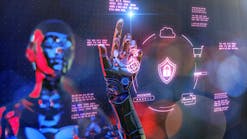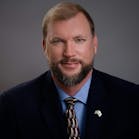SIW published a Sage Conversations column in October entitled, "Be a Leader," which examined the conversations I have with executives this time of year. The fourth quarter is usually a period of budget and operational planning for the New Year. We also begin to take stock on the key performance metrics we had originally targeted. We gauge whether those metrics helped us understand how our people, processes and tools were performing against those core indicators of value that are critical to the organization.
And that is the rub. What does our organization value in us and the operation we lead?
Francis D'Addario, an emeritus faculty member of the Security Executive Council, has been dealing with that question since his days as a security executive with companies such as Starbucks and the Southland Corporation. He is well- known in the industry for his thought leadership in cross-functional protection and profit improvement methodologies.
D'Addario's answer might surprise you because it starts with leadership.
"Lasting organizational certainty and resilience depend on persuasive board level risk mitigation, but it requires the tools of leadership to achieve it," said D'Addario. "By aligning leadership with continuous solution improvement you enable any mission or strategic plan. It is arguably the new price of admission for both organizational business and all-hazards risk mitigation leaders."
To meet this challenge and this need, D'Addario has been one of the key drivers of the SEC’s Next Generation Security Leader Program, which is meant to take current leaders and their teams to the next level of value in their organization. This tuition-based program will be offered on March 4 at The Great Conversation in Security event in Seattle.
According to D'Addario, the program was developed by:
• Surveying and consulting security’s “most influential” leaders regarding proven practices and educational gaps
• Corroborating the key curriculum elements and approach with respected Tier 1 Security Leaders and their deputies in an extended workgroup.
• Informing the content for business relevancy with academic input from one of the most prestigious business schools in the country; the Darla Moore School of International Business at the University of South Carolina.
• Recognizing organizational resilience requires an uninterrupted intellectual supply chain for risk mitigation challenges - leadership training, development, and succession planning.
The instruction and the content have been approved and tested on six continents. Recently it was released in a webinar format and was universally acclaimed for embedding the lessons learned from the cases studies of leading CSOs to specific training tools that could be used by practitioners to bridge career changing transitional events.
I believe this kind of program is a key performance indicator for the industry. The Security Executive Council has not only leveraged key intellectual assets from the security ecosystem, but they have also collaborated with a prestigious business school to drive this advanced education into leadership events like the Great Conversation. What a rarity it is to converge the mind of the business executive with the mind of the all-hazards risk mitigation team.
This also becomes one of those unique opportunities for leaders and key members of their team to experience a certified and accredited security education and leadership-training event together.
"Next Generation Security Leaders are cross-functional collaborators", said D'Addario. "When we interviewed security’s most influential leaders, we recognized their need for a intergenerational, collective knowledge transfer. This applies to their risk peer group as well as their executive management, their solution providers and their consultants. "
Knowledge acquisition is a continuous process. It takes vigilance. It requires intentional and focused discipline to acquire data, turn it into useful information and apply it contextually to the value we have been asked to deliver. Finding the leadership, business, and security framework for advancing the individual and team leadership quotient of your operation may be the key to re-framing your next generation 2013 plan.




